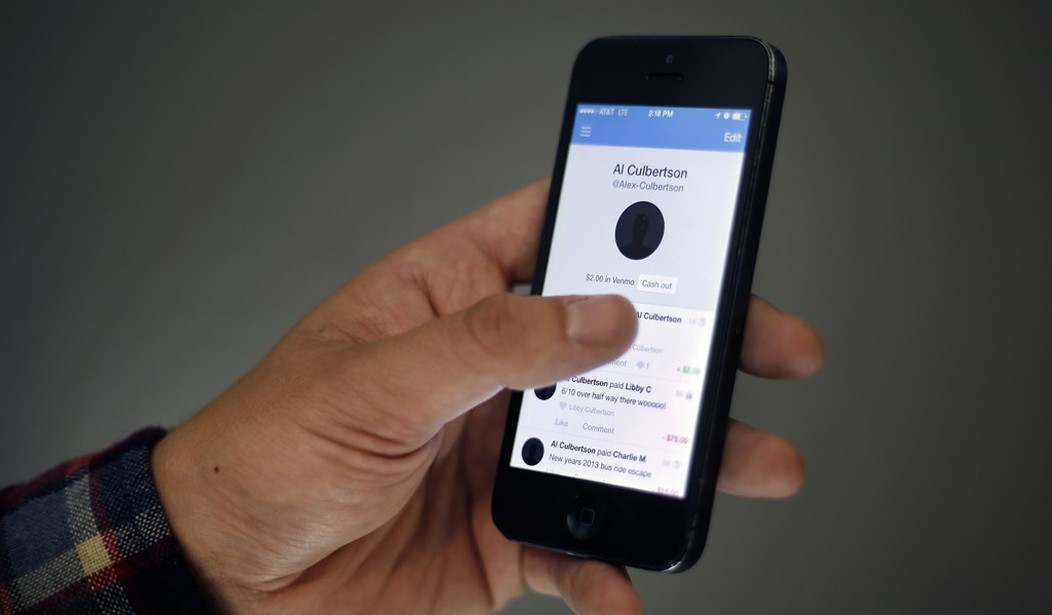If you use Venmo, PayPal, or CashApp, you could be in for a rude awakening next tax season. Due to Kamala Harris’s tie-breaking vote in 2021, the IRS will soon force users of peer-to-peer online payment apps to deal with additional paperwork – whether they owe taxes on the payments or not.
Imagine this: you sell a few items on Facebook Marketplace or split an Airbnb with friends. Come next year, a new 1099-K tax form will land in your inbox, and that’s just the beginning of your headache.
A 1099-K was once an obscure IRS form intended to track business payments done with peer-to-peer payment platforms such as Venmo. Now it threatens to overwhelm everyday Americans with IRS paperwork and confusion which will trigger the payment of taxes even when there is no tax owed.
Prior to the American Rescue Plan Act of 2021, you’d only receive a 1099-K form if you exceeded 200 transactions and received more than $20,000 in a year from a given payer. This bill eliminated the transaction limit and slashed the threshold to $600. That’s right – receive over $600 on Venmo, and you’re caught in the IRS net.
It’s not the payment platforms to blame, it’s the government, specifically the politicians who enacted it: Every part of this law came directly from Democrats, without even a single Republican vote.
Over half of Americans have taken on some sort of side hustle to supplement their primary income, according to MarketWatch. For millions of Americans, these side gigs help pay bills, buy Christmas presents, or stock up on groceries. Even if gig economy income is just a fraction of your day job income, in this economy every penny counts.
Let’s say you cleaned out your garage and sold some used exercise equipment or thrifted clothes on Facebook; if you hit that $600 mark, you’re in the system. The paperwork will imply you owe taxes on the payment you received, causing hassle, confusion, and mistakes.
Recommended
In this common scenario, used items are sold at a loss but the only thing the IRS knows is that you received money, and the agency will assume you owe taxes on it. The burden is on you to “prove” you sold the items at a loss. You have the receipt handy for the lawn mower or drum set you purchased 15 years ago, right?
You may then receive a letter in the mail from the IRS and must spend considerable time and money sorting things out. Your refund could be delayed. You could end up being audited.
Now, imagine you’ve received a payment from selling a used TV, but most of your transactions are between friends and family. Once you cross that $600 threshold and receive a 1099-K form, the IRS recommends you contact the issuer of each transaction individually. If the issue isn’t resolved, the IRS advises filing the incorrect form anyways and reporting the error on your tax returns. Need help with this? The IRS website clearly states “Don't contact the IRS. We can't correct your Form 1099-K.”
The IRS bureaucracy is meant to be confusing by design. The department is notorious for slow customer service and mishandling data. The upcoming influx of 1099-K forms due to the lowered threshold will surely exacerbate these issues given the complexity of an ever-expanding tax web no one understands.
The Harris-imposed 1099-K paperwork law will hurt millions of Americans. Platforms like Venmo for example currently have over 85 million users. When just examining casual sellers, a 2021 study found that 47% were unaware of the upcoming IRS reporting requirements threshold changes.
Fortunately, this nightmare scenario is not inevitable. Rep. Carol Miller (R-W.Va) recently introduced the Saving Gig Economy Taxpayers Act (H.R. 190) which aims to revert the 1099-K reporting threshold back to $20,000 and 200 transactions. The bill has already passed through the Ways and Means Committee by a vote of 22-16 earlier this month earning zero Democrat votes.
The majority of Americans who use payments apps for occasional transactions now face the same reporting requirements as large businesses.
This fight over 1099-K forms is indicative of Kamala Harris and the Democratic party’s micro-manager approach to government. They have such little trust in the average American that their philosophy necessitates this type of heavy bureaucratic regulation.
Harris asserts her tax increase plan will only go after “billionaires.” How many billionaires do you know who sell their old couch on Facebook?
Francisco Ferrisi is a policy associate at Americans for Tax Reform.

























Join the conversation as a VIP Member